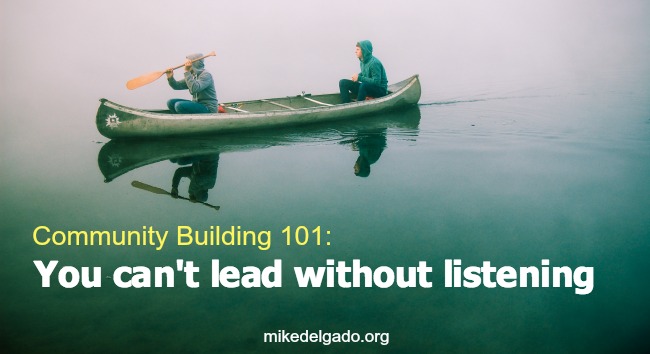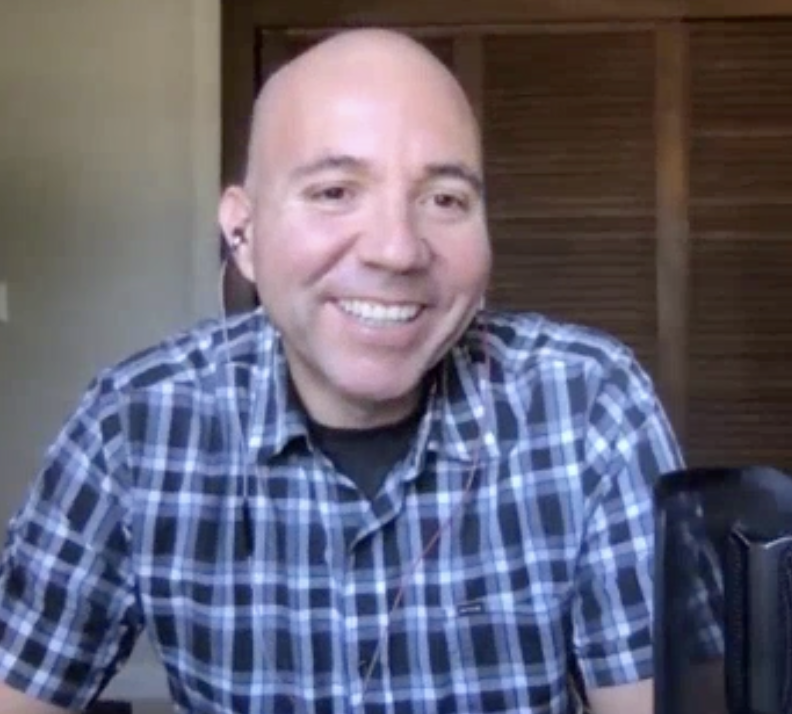
You can’t lead an online community without listening to them.
The trouble is that we struggle to make time to listen – and don’t always have the best tools to help us listen smarter. Besides, we have content to produce, social posts to schedule, blogs to write, meetings to attend, campaigns to work on, and reports to run.
However, If we want to be better community builders, then we need to be intentional about listening.
Why We Struggle to Listen to Our Communities
Here are a few reasons why we struggle with listening:
The trouble with listening is that there is no immediate ROI.
One reason why we have trouble listening to our communities is that we have nothing to show for it when we’re done. Listening is passive – and we’ve produced nothing at the end. If you spend a full day listening to your community, you have nothing to show for it. Well, you could produce a canned “social mention” report with word clouds, social mention counts, and sentiment analysis – but that’s just an automated report that anyone can run. Those automated reports only help you with listening, they don’t listen for you.
The trouble with listening is that it takes time.
It takes time to spend time reading blogs – and sometimes more time reading through the comments. It takes time scrolling through forums and Reddit threads. It takes time reading books that our community cares about. It takes time reading articles written by the thought leaders and journalists in the field we study. And the trouble is that we often don’t have enough time in our day to do this.
The trouble with listening is that it takes work.
Aside from the time involved in listening, you need to dig into the content. And – depending on the content – this might not be easy reading. Some reading is fun and easy, and you might even get drawn into it (which is a wonderful experience for a community builder). However, sometimes the content is difficult to tread through – and you need to spend more time than you’d like learning the concepts and getting familiar with the jargon. No matter what you’re studying, it takes critical analysis to help you sort through the important concepts and discussions.
The trouble with listening is that it never ends.
Listening to your community doesn’t mean you run a social mention report once a quarter. Listening is something that you need to do regularly. You need to be intentional about setting aside time in your week to read what your community is saying.
Listening is a struggle for all of us – but a primal part of our role as a community builder. How are we supposed to care and build up our communities if we’re not listening to them? How are we supposed to have any sort of relationship and real engagement if we’re blind to what matters to them?
Why Listening Matters to Your Business
If you struggle with listening like me, here are some reminders on why listening is vital to grow your community and business:
Listening to your community is how you start building relationships.
You can’t build a relationship with anyone without spending time with them. Listening is the first step to begin learning about another person – and it’s the first step to learning about your community.
Listening is how you find out what our community cares about.
Only by spending time reading conversations by your community will you learn about their passions, interests, and topics that interest them. This will help you figure out what content you should be creating – and what questions you should be answering.
Listening to your community will help you create better content.
If you want to create content your community will crave, you need to know what’s already been written. You need to read their blog posts, study the comments, watching their videos, listen to their podcasts, etc. If you find yourself bored with this aspect of your job, then you should change your role. Community builders at the core care about the content and concerns from their community.
Listening to your community will help you become empathetic and discover problems.
A huge benefit of listening regularly is that you can discover potential problems with your products and/or services. Listening to your community will help you uncover challenges you should help solve. You will discover what annoys them – and what interests them. Through listening, you can become empathetic to these problems and help your business solve them.
Listening to your community will help you discover influencers.
Another benefit of listening is that you will discover those who are influential and trusted in your community. These are the people that are actually making a difference and you should spend time reading their content and sharing their insights.
So what are we to do? How can we do a better job at listening with our busy schedules?
Strategic Ways to Listen Smarter
Here are some practical ways to listen smarter:
Listen by monitoring keywords that matter to your business – not just your brand name.
It’s easy to monitor variations of your company’s name – but that’s not listening. You need to think about all the keywords your target audience might be search for and discussing.
To start, spend time talking with your search marketing (SEM) and search engine optimization (SEO) teams to find out about important keywords for your business. What are the keywords that drive conversion? What are the topics your company is spending money developing content around to help get more organic traffic? Those can be excellent keywords to listen for in forums, blog posts, public groups, articles, etc.
As you discover a list of keywords, consider sharing your social media reporting with your SEO and SEM team. This can help them see topics and themes they have not considered – or websites where the company could potentially target with advertising. Your goal as a community manager is to listen to keywords that matter – and you need to remember that you don’t work alone in this task. Work in your organization with teams that care about keywords, too — and learn from their efforts.
Create time in your schedule to listen to your community.
You need to be intentional about listening — and block off time in your schedule. In fact, if you don’t schedule time in your calendar to listen, you probably won’t. Just as you take time to check and respond to email, you need to prioritize time to listen to your community.
If you don’t already schedule time to listen, don’t go overboard and block out a half-day to listen each week. That’s just not a practical approach you can consistently keep up. Instead, start with blocking out just a half-hour every day. This could be something you do right before lunch – or a task you complete at the end of your day. I think every community manager can find a half-hour in their day to listen, and it’s a big step in showing that you care for what your community is saying.
Use the right combination of listening tools to automate certain aspects of listening.
There are many online tools for listening – and I’m not an expert in each tool. However, I want to give you a variety of potential tools you can use to help you with listening.
Here are some free online listening tools that can provide you a snapshot on what’s happening:
- Google Alerts is a tool that your senior leaders might already be using. And if they are getting automated emails when you brand name or competitor’s name is mentioned, then you should also make sure you’re getting these emailed alerts, too. Google Alerts is a simple tool that scrapes web content around keywords you are monitoring. It’s free and nice to see a simple automated report in your inbox each morning at no cost.
- Social Mention is a dope tool that can provide you a quick snapshot on social mentions and sentiment on any keyword you type in. And the analysis extends beyond websites, you can use this tool to do a deeper dive into specific channels (e.g. blogs, comments, microblogs, video, etc.). It will give you easily digestible content and some visual graphs o help you see other important keywords used, top users engaged on the topic, related hashtags, and top online channels where this conversation is happening (e.g. Twitter, Reddit, YouTube, etc.). I use this tool a lot for doing a quick analysis on keywords that I’m not already monitoring.
- Topsy is another killer social listening tool that is a deeper dive into what’s happening on online for whatever keyword you’re tracking. What i like about Topsy is the analysis you can do within certain date ranges. You can review social mentions within the past hour, past day, past seven days, past thirty days, all time, or a specific time range you want to see. You can also track in different languages, which is important if you work for a global organization.
- TweetReach is one of my favorite tools for analyzing Twitter – and I use this tool weekly since I run tweet chats. It will provide you with a list of every tweet for any keyword you are tracking within a certain time-frame and will give you a break-down of estimated reach and number of tweet impressions. I really like the timeline view – so that you can see how that keyword is trending on Twitter by hour. It is one of my favorite Twitter tools – but to get a full analysis you will need to pay a fee. A similar tool to check out is Hashtracking, which does similar types of reporting. .
Communicate the importance of listening to your senior leaders.
We need to educate our senior leaders about the importance of listening. They need to know the time involved. They need to know how you’ll report on this information. They need to know why listening will provide value to the business (as well as your community). As a community builder, you need to build your case on why listening is crucial to your work – and the company.
Here are some practical ways to build your case to leadership:
- Listening will help you discover trends and topics important to your business
- Listening will help you identify and solve customer complaints faster
- Listening will help you find ways to make your products/services better
- Listening will help you find out what people are saying about your competition
If we can’t convince our leadership about why listening is crucial to building community, then you’ll never justify creating time in your schedule to do it.
So how do you listen to your communities? What are your favorite tools?

